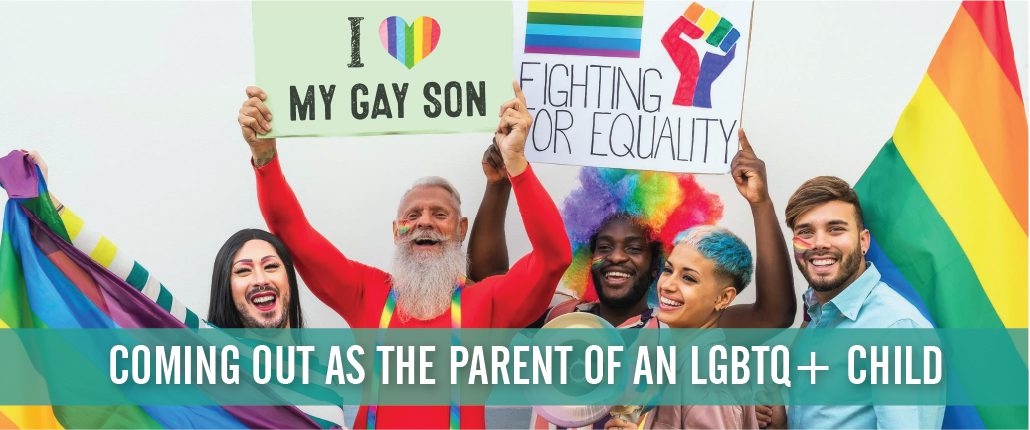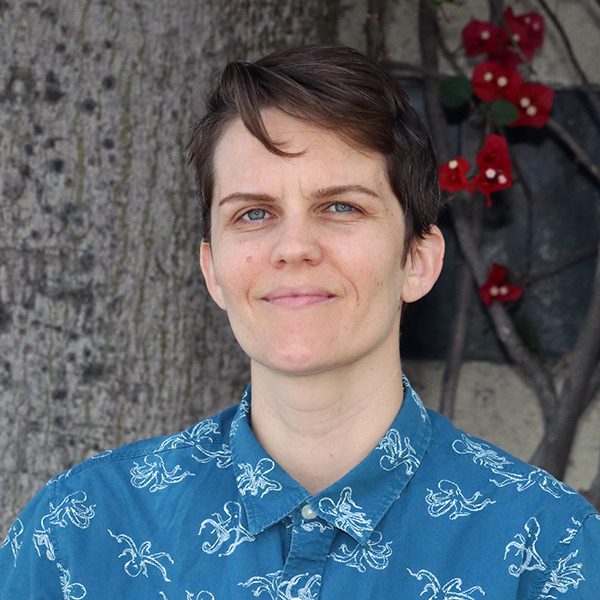
Coming Out as the Parent of an LGBTQ+ Child
By Jay Baldwin
Every week, I meet parents who tell me the story about their child or young adult coming out to them as LGBTQ+. For some parents, their child came out to them at an early age and they are a few years into their journey. For other parents, their children only just came out in the past few weeks or months and they are just starting to navigate what it all means. Whatever the case may be, just as a LGBTQ+ youth has their own coming out process, parents and caregivers of LGBTQ+ youth will have their own coming out process too.
Some parents may find it easy to accept their child as LGBTQ+, while others may express hesitation or uncertainty about their child’s identity. While the journey to understand, accept and affirm an LGBTQ+ child throughout their life is not linear by any means, there are often common themes, themes and emotions that I see expressed by parents who are raising an LGBTQ+ child, regardless of their level of acceptance. Often, this starts with a lot of questions that come from a place of uncertainty, confusion and fear. Depending on one’s cultural and religious beliefs, many parents may wonder things like:
Is my child just going through a phase? Will my child ever get married or have children? Did my parenting style cause my child to be this way? How will people treat my child? How and when do I share my child’s identity with others?
At Kaleidoscope, we want parents to know that these are all normal and understandable questions and reactions to a child’s LGBTQ+ identity. We also want parents to know that we offer several support groups for parents of LGBTQ+ youth to share their experiences, give and receive support, and learn about valuable resources. Here are a few commonly asked questions:
I’m nervous about attending a support group. What can I expect?
The purpose of our groups is to support you wherever you are in your journey. You are welcome here, and you will not be judged or shamed in any way.
I love my child, and I am also grieving the life I thought my child may have had. Can a support group help me with these kinds of feelings?
Parent support groups can help parents realize that grieving is a process. It is not linear and it takes time to adjust. It can be comforting to talk with other parents who may have similar feelings or initial reactions. Sharing these emotions in a safe space can provide an opportunity for self-exploration of one’s own biases and fears. It can often provide parents with a sense of hope to hear from other parents who have moved from a place of grief to acceptance.
There are groups for parents of neurotypical children and neurodivergent LGBTQ+ children. Is parenting an LGBTQ+ child similar for both cohorts?
Although each child with autism has a unique experience, LGBTQIA+ young people that are also on the autism spectrum may face more complex challenges than their neurotypical peers. It’s important to listen to these young people and consider the potential influence of certain factors, such as theory of mind deficits, social challenges, sensory sensitivity, and more, while also recognizing that autistic youth have as much of a right to identify and express who they are as neurotypical young people.
I’m interested! Where do I sign up?
If you are interested in joining our Parent/Caregivers Support Group in English or in Spanish, please contact Dr. Joselyn Valle at [email protected]
To inquire about our new Parent Education Group for Parents of LGBTQ+ Autistic Youth that begins in September, contact Dr. Sarah Bruce at [email protected]
